Are you navigating the complex waters of shipping agreements and finding it a bit overwhelming? You're not alone! It's crucial to clarify every detail to ensure smooth sailing in your business transactions. In this article, we'll dive into the essential elements of a shipping agreement and provide you with a handy template to simplify the processâso let's embark on this journey together!
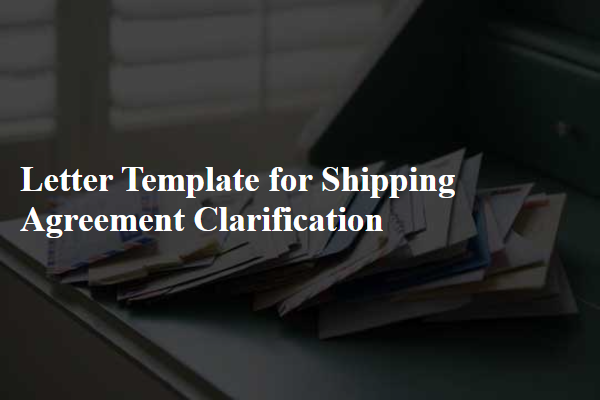
Parties Involved and Contact Information
A shipping agreement between two parties, typically involving a consignor (sender) and a consignee (recipient), outlines specific terms related to the transportation of goods. Essential contact information for both parties includes names, addresses, phone numbers, and email addresses, facilitating clear communication. This document may also reference third-party logistics companies, freight forwarders, or shipping carriers providing additional services or support. Properly identifying the involved parties not only enhances accountability but ensures legal compliance and aids in resolving potential disputes.
Shipping Terms and Conditions
Shipping agreements play a crucial role in defining the terms and conditions for transportation service. Clear shipping terms ensure that both parties understand obligations, delivery timelines, and liability aspects involved in shipping goods. Common shipping terms include Incoterms (International Commercial Terms) which outline responsibilities for cost, risk, and transportation between the seller and buyer. Additionally, shipping conditions specify the mode of transport (truck, ship, air), packaging requirements, and documentation necessary for international shipments, such as bills of lading and customs declarations. Dispute resolution procedures and satisfactory conditions for liability, including insurance coverage, are also essential to minimize risks associated with lost or damaged goods during transit. Understanding these detailed aspects can prevent litigation and foster successful business relationships.
Payment and Billing Details
The shipping agreement outlines crucial payment and billing details that dictate the financial aspects of the transaction between parties involved. These details include the total shipping cost, which incorporates various charges such as freight fees, insurance, and customs duties, if applicable. Payment terms specify the due date for payment, typically within 30 days post-invoice issuance, and accepted payment methods, including wire transfers and credit cards. Additionally, late payment penalties may be outlined, typically expressed as a percentage of the outstanding amount per week. It's essential to clarify the currency used for all transactions, ensuring both parties agree on whether payments will be made in USD, Euro, or another currency. The agreement also designates which party is responsible for additional fees that may arise during shipping, such as taxes, creating transparent financial expectations throughout the shipping process.
Delivery Schedule and Responsibilities
Defining a clear delivery schedule is crucial for shipping agreements to ensure timely and efficient transportation of goods. The delivery schedule outlines specific dates for dispatch and arrival of shipments, which can vary by location, such as international shipments requiring customs clearance in ports like Los Angeles or Hamburg. Responsibilities in this agreement include the sender preparing goods for shipment according to industry standards, such as packaging regulations for fragile items, while the carrier must ensure safe transport and adhere to timelines. Communication protocols, such as notifying customers of tracking updates and shipment delays, play a significant role in maintaining transparency throughout the delivery process. Notably, freight companies like FedEx or UPS have designated procedures for handling such responsibilities to mitigate risks and enhance customer satisfaction.
Dispute Resolution and Amendments
Dispute resolution methods in shipping agreements often include mediation and arbitration, which allow parties to resolve conflicts outside of court. Mediation involves a neutral third party facilitating discussion, while arbitration results in a binding decision made by an arbitrator. Amendments to contracts require mutual written consent from involved parties, ensuring that changes reflect current circumstances. Shipping agreements typically specify governing law, often based on United Nations Commission on International Trade Law (UNCITRAL) guidelines, applicable to import/export scenarios. Furthermore, certain jurisdictions, like London or New York, may be preferred for legal proceedings due to their established commercial law frameworks. Clarity on dispute resolution and amendment processes is vital for minimizing risks associated with shipping operations.
Letter Template For Shipping Agreement Clarification Samples
Letter template of shipping agreement clarification for international trade.
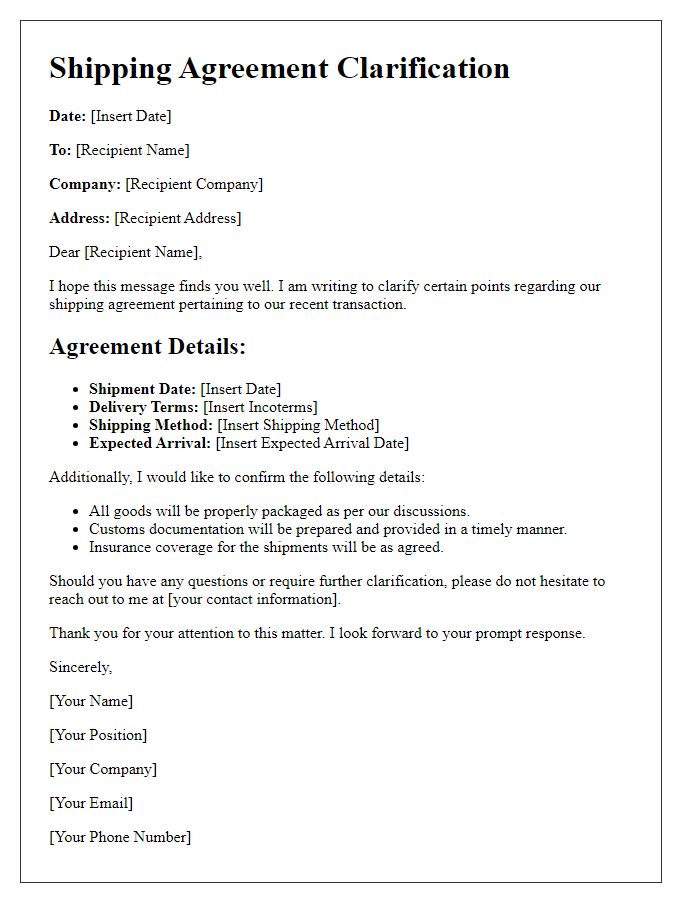
Letter template of shipping agreement clarification for domestic transport.
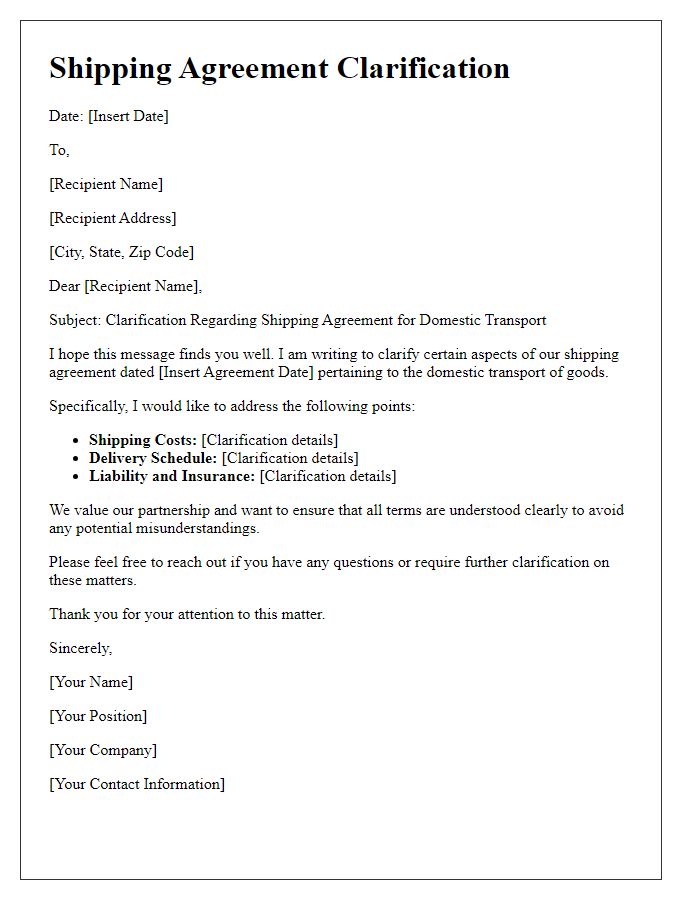
Letter template of shipping agreement clarification for freight forwarding.
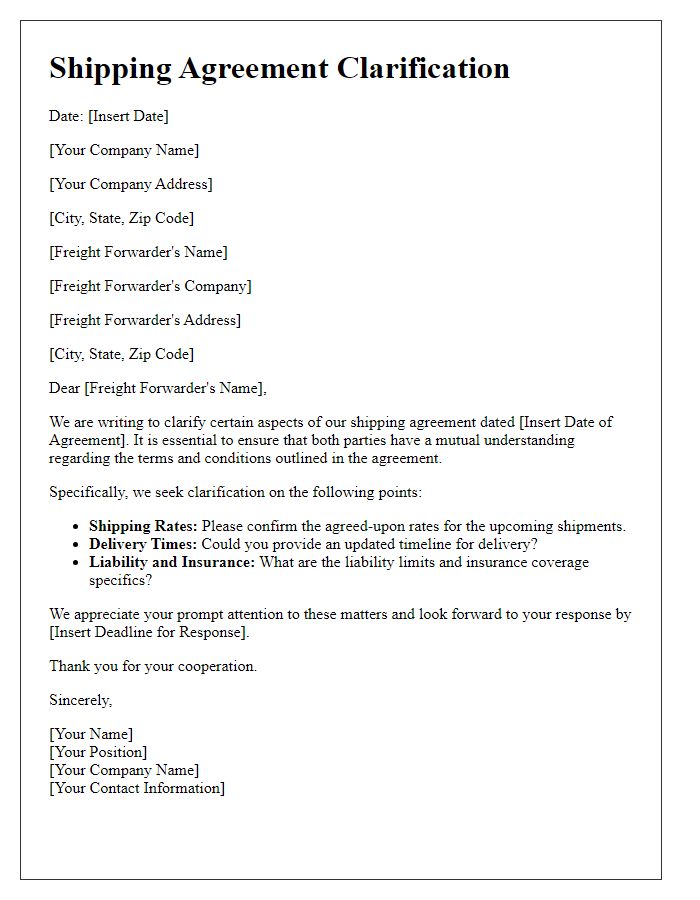
Letter template of shipping agreement clarification for delivery schedules.
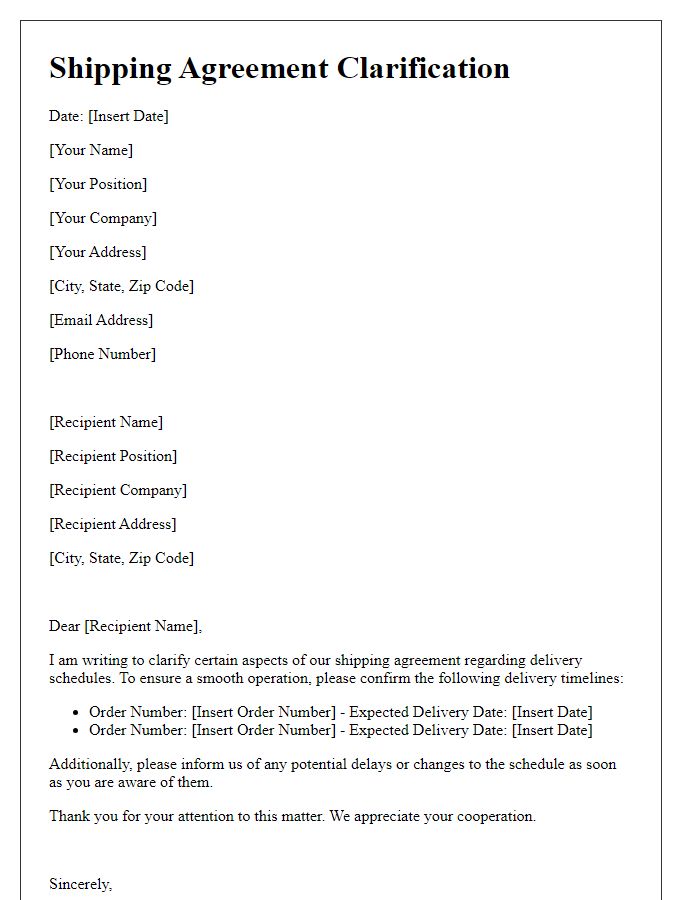
Letter template of shipping agreement clarification for pricing disputes.
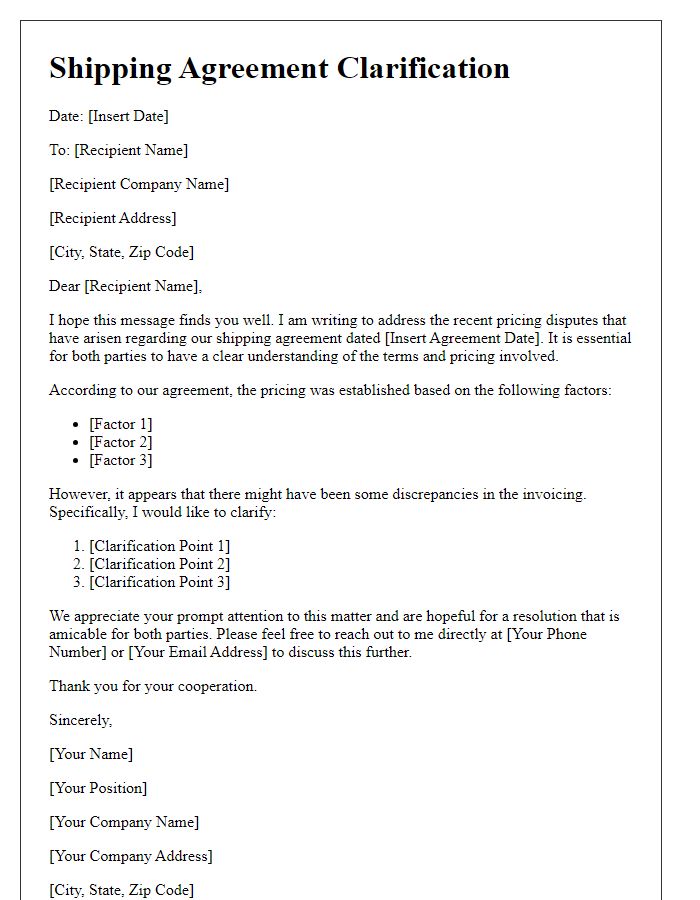
Letter template of shipping agreement clarification for terms of service.
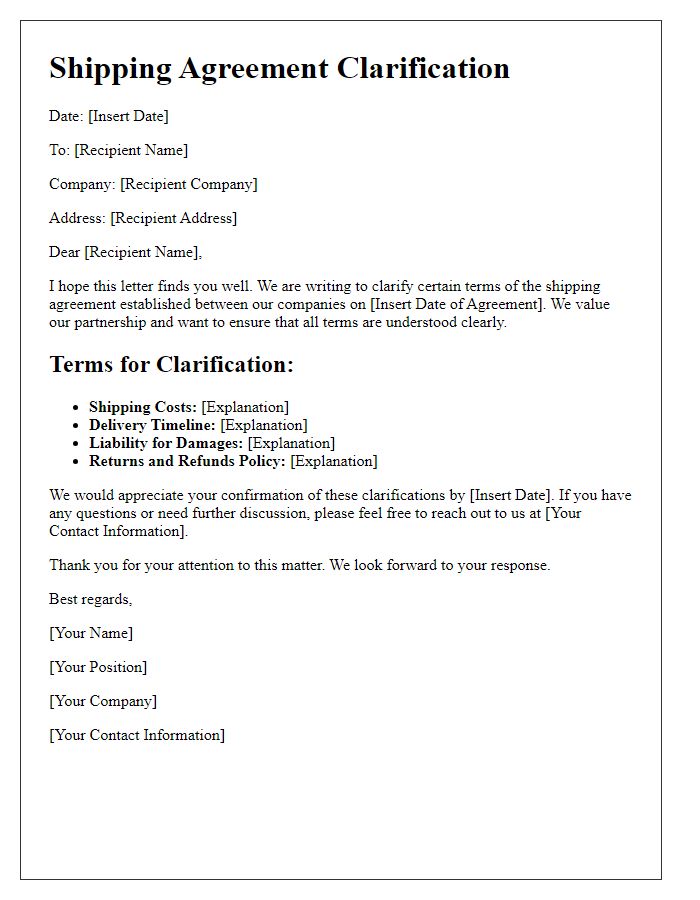
Letter template of shipping agreement clarification for insurance coverage.
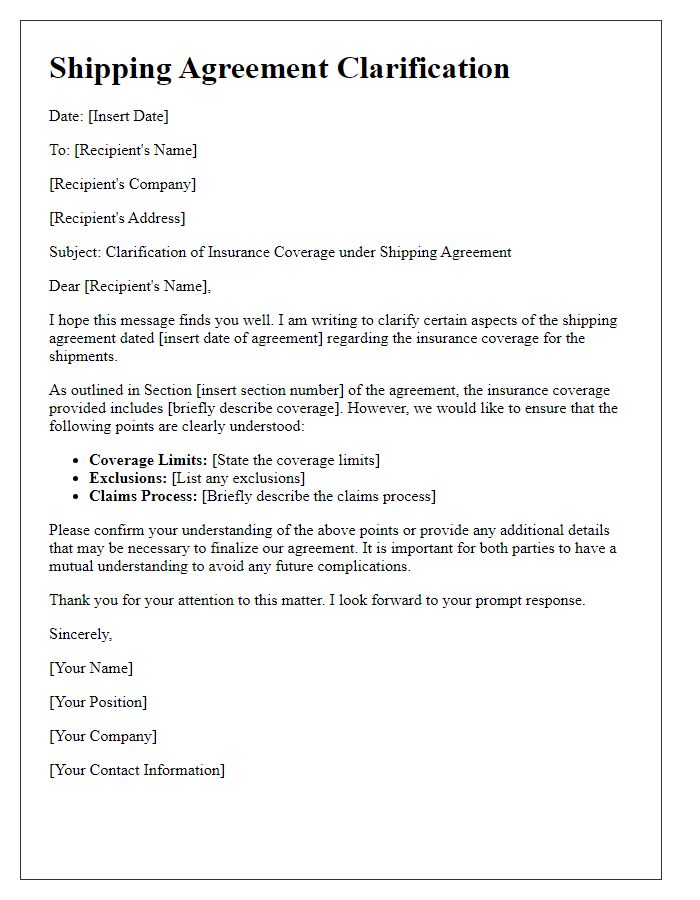
Letter template of shipping agreement clarification for delivery delays.
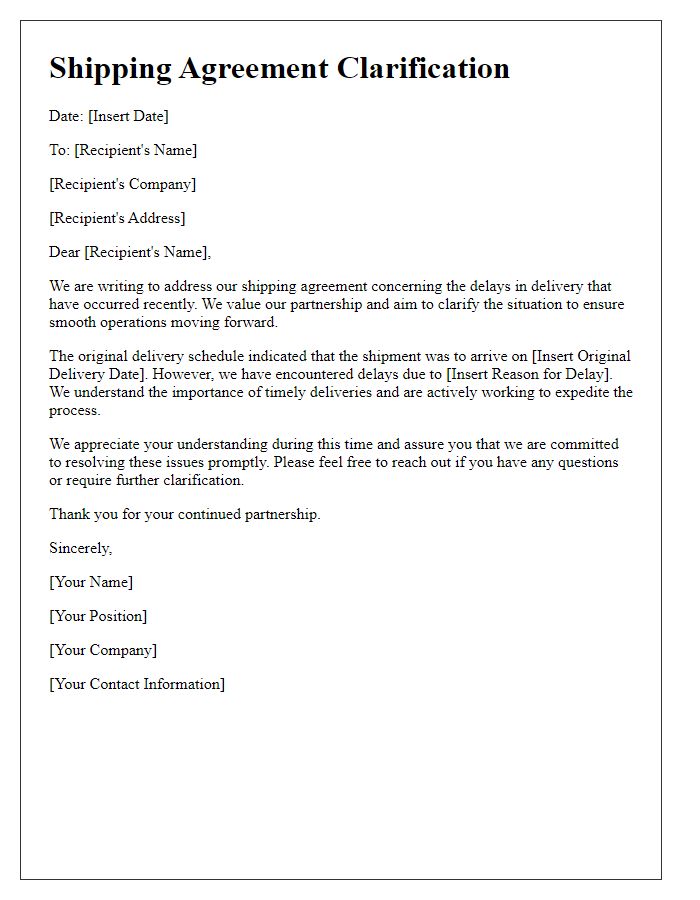

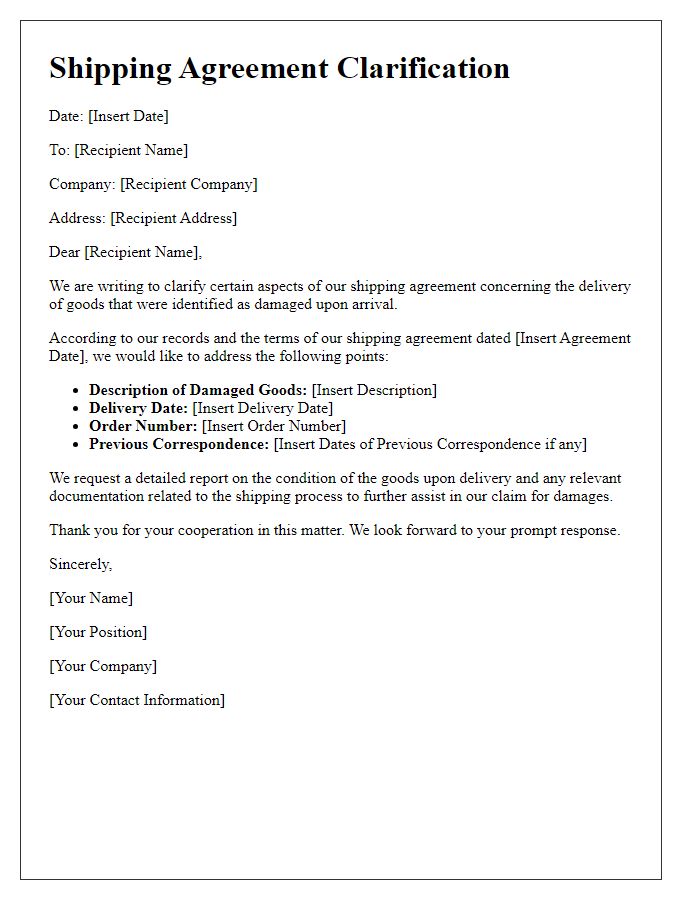
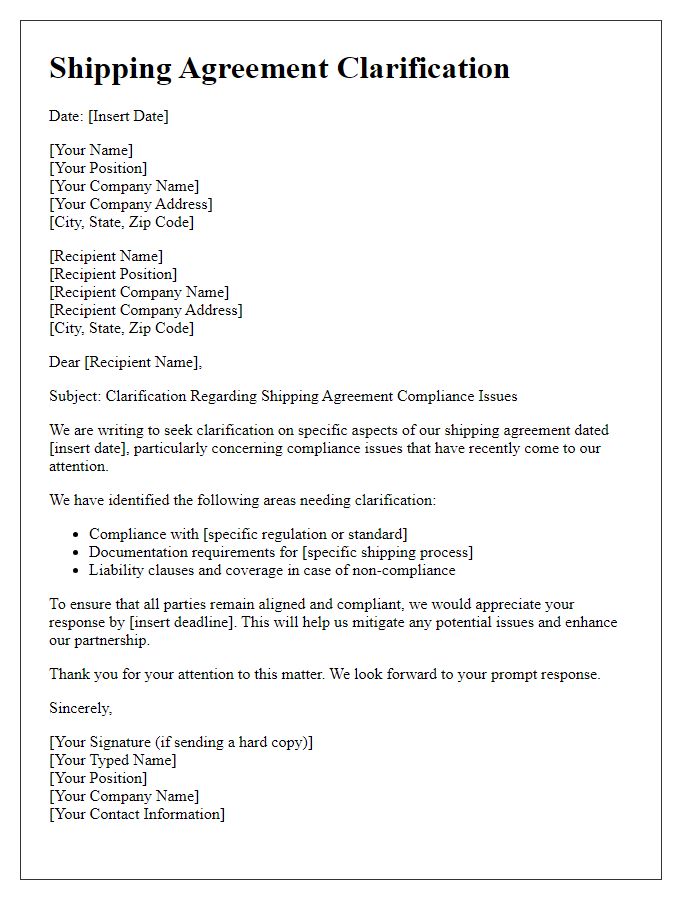


Comments